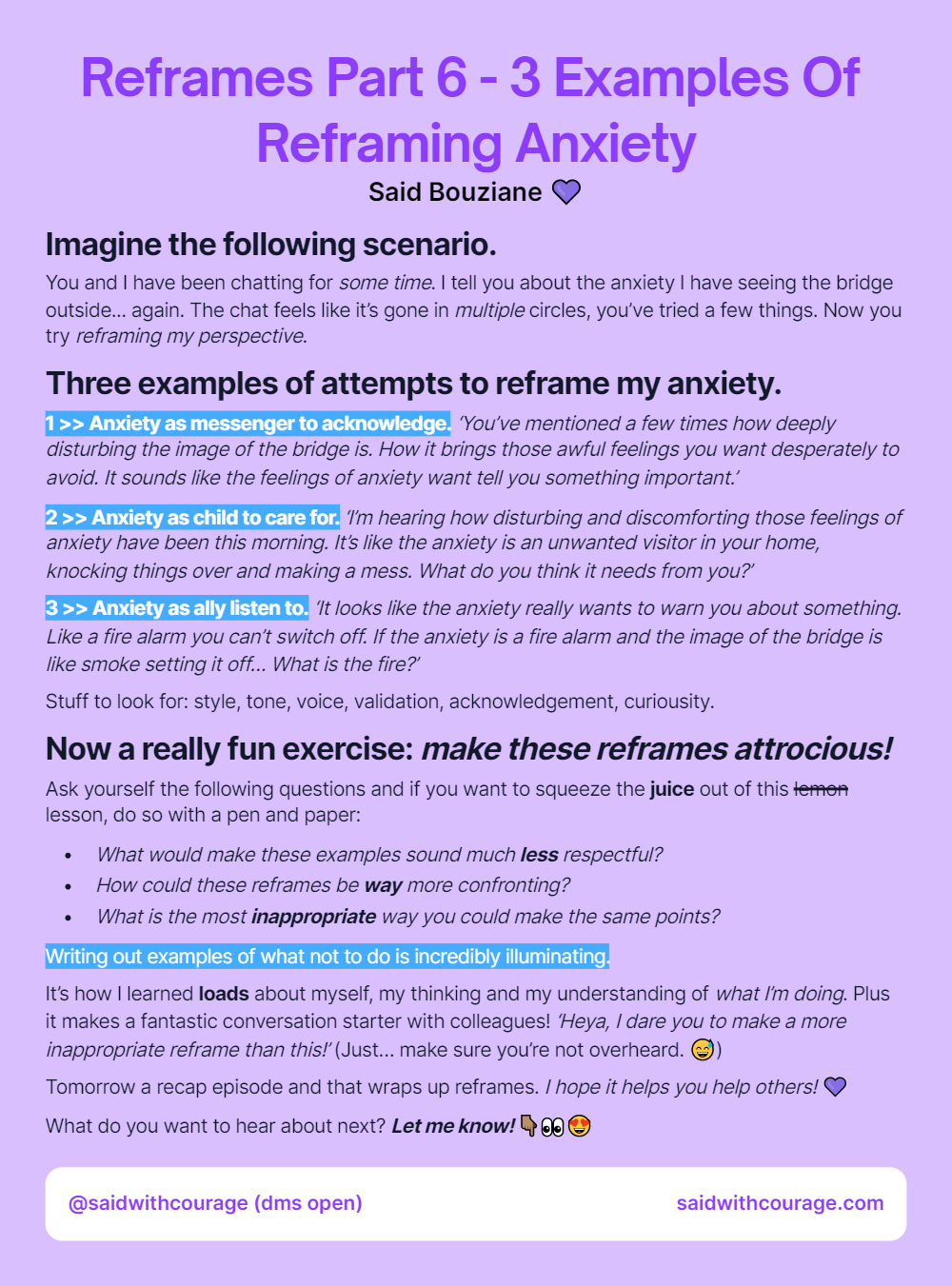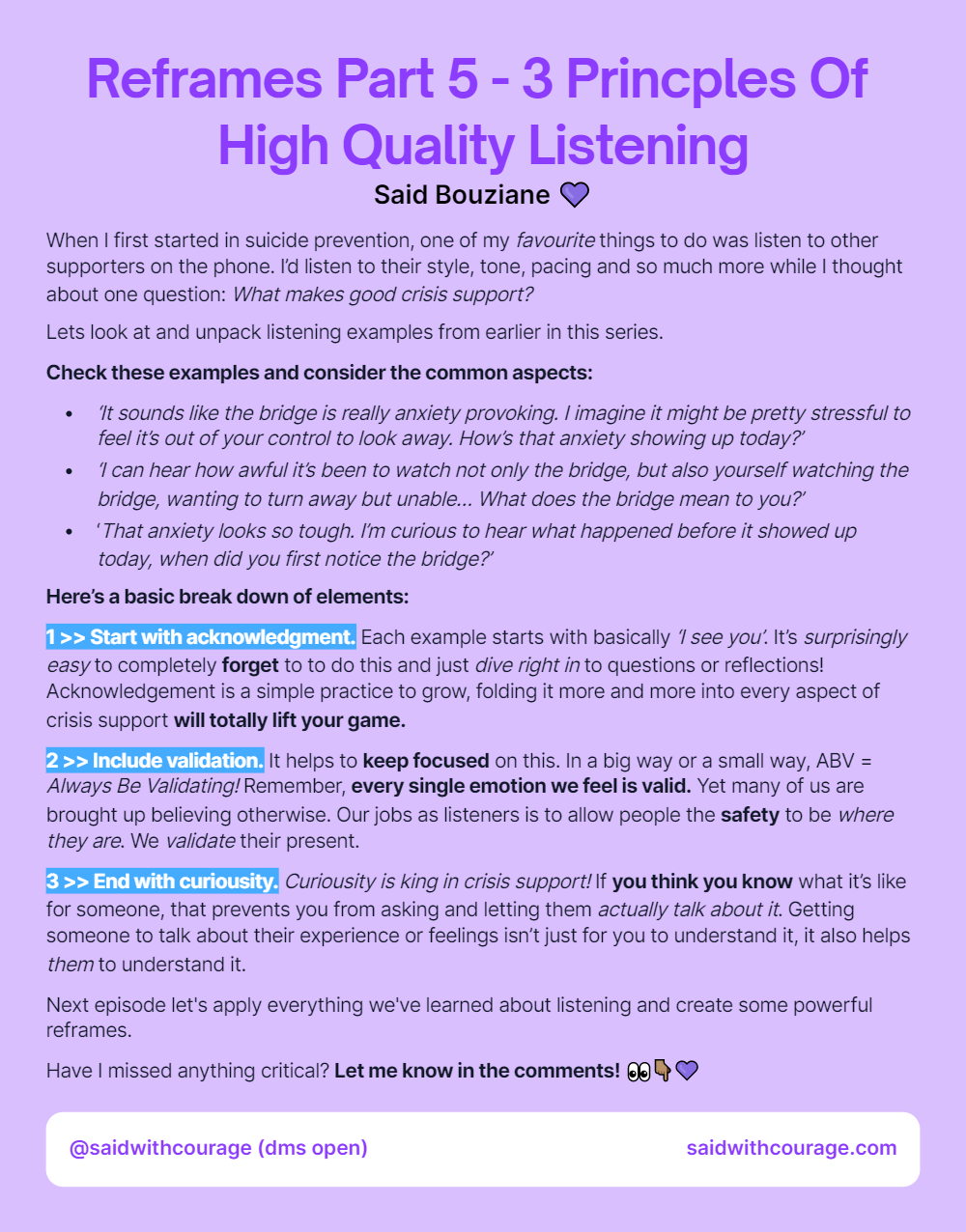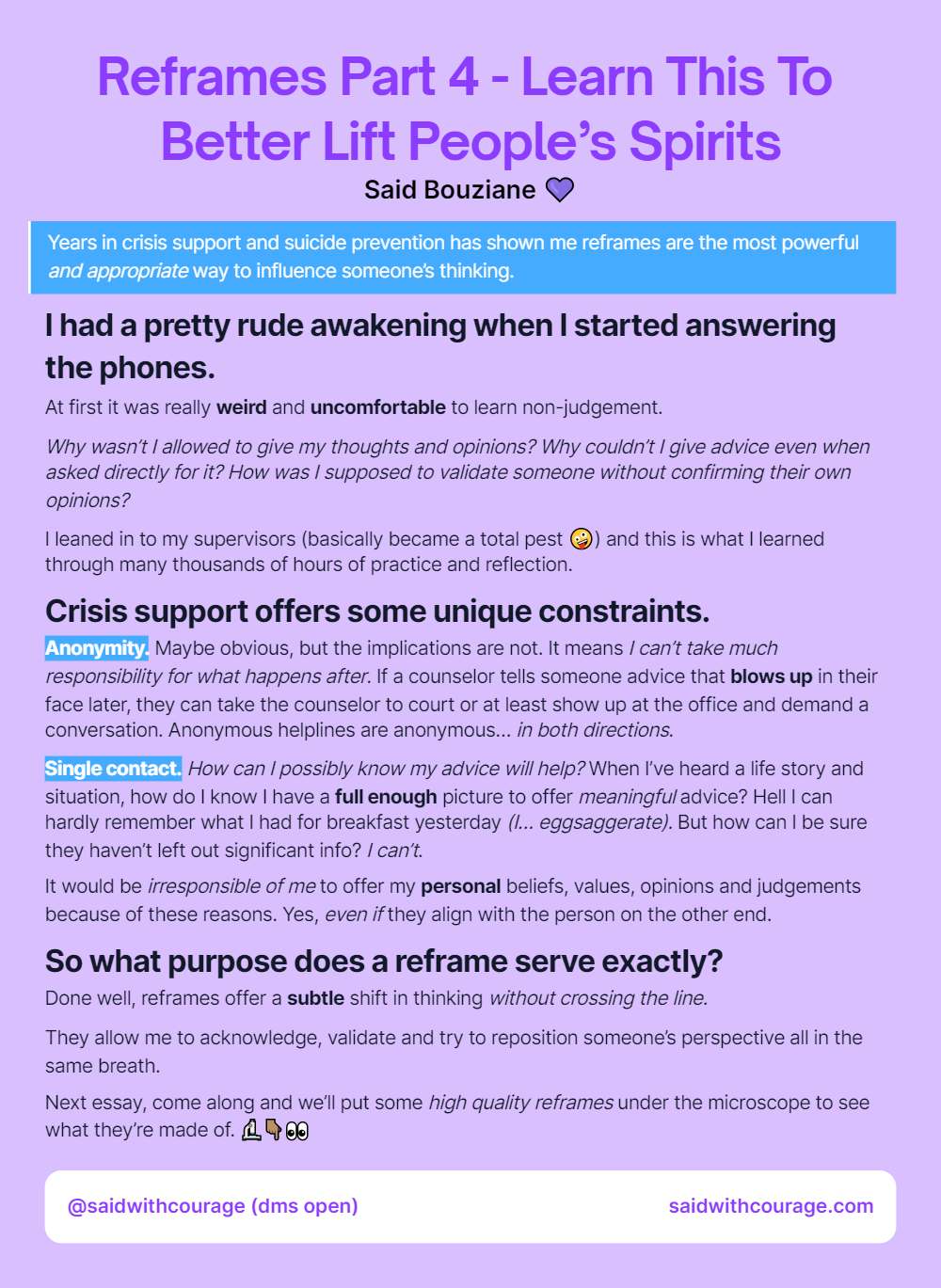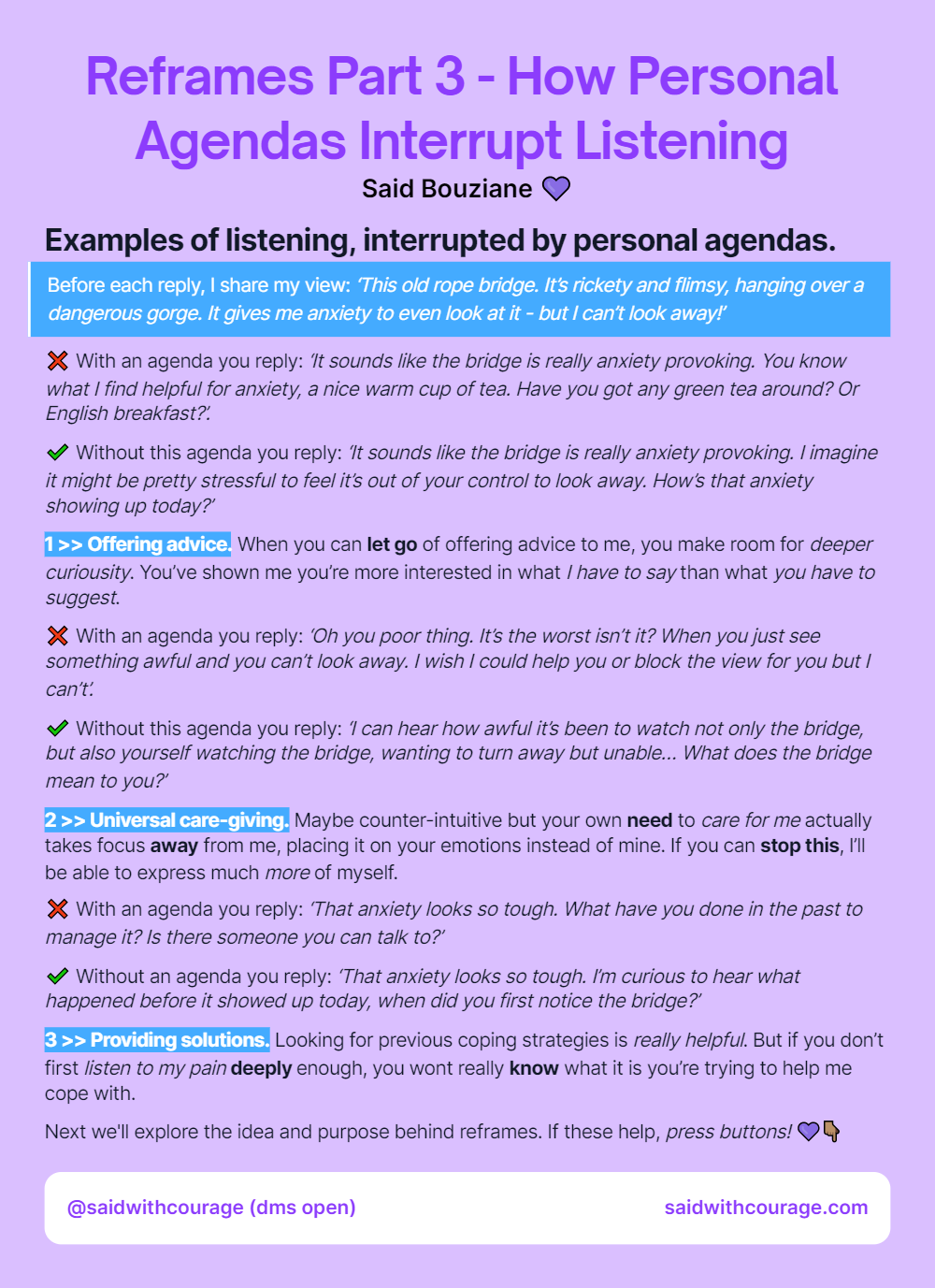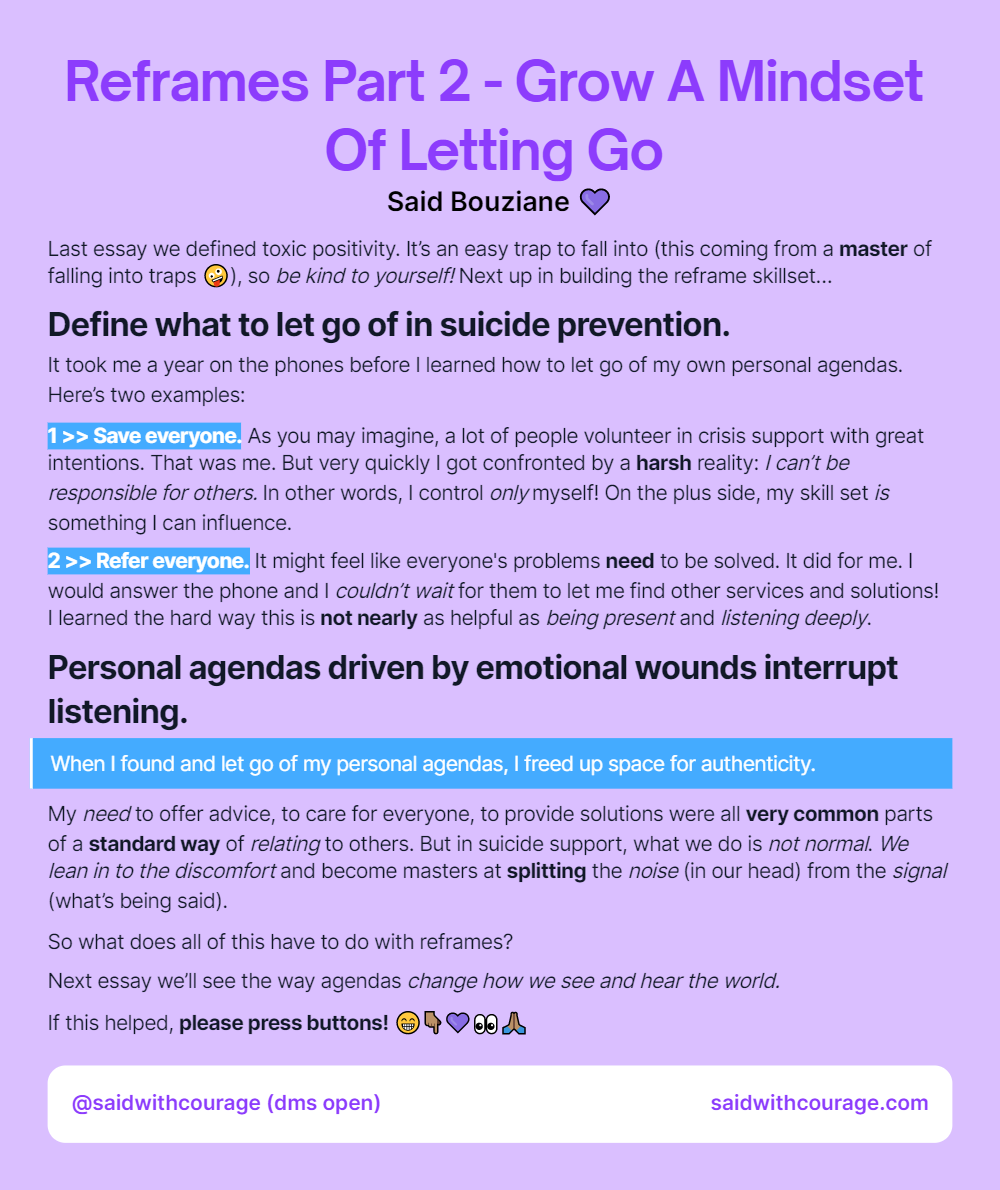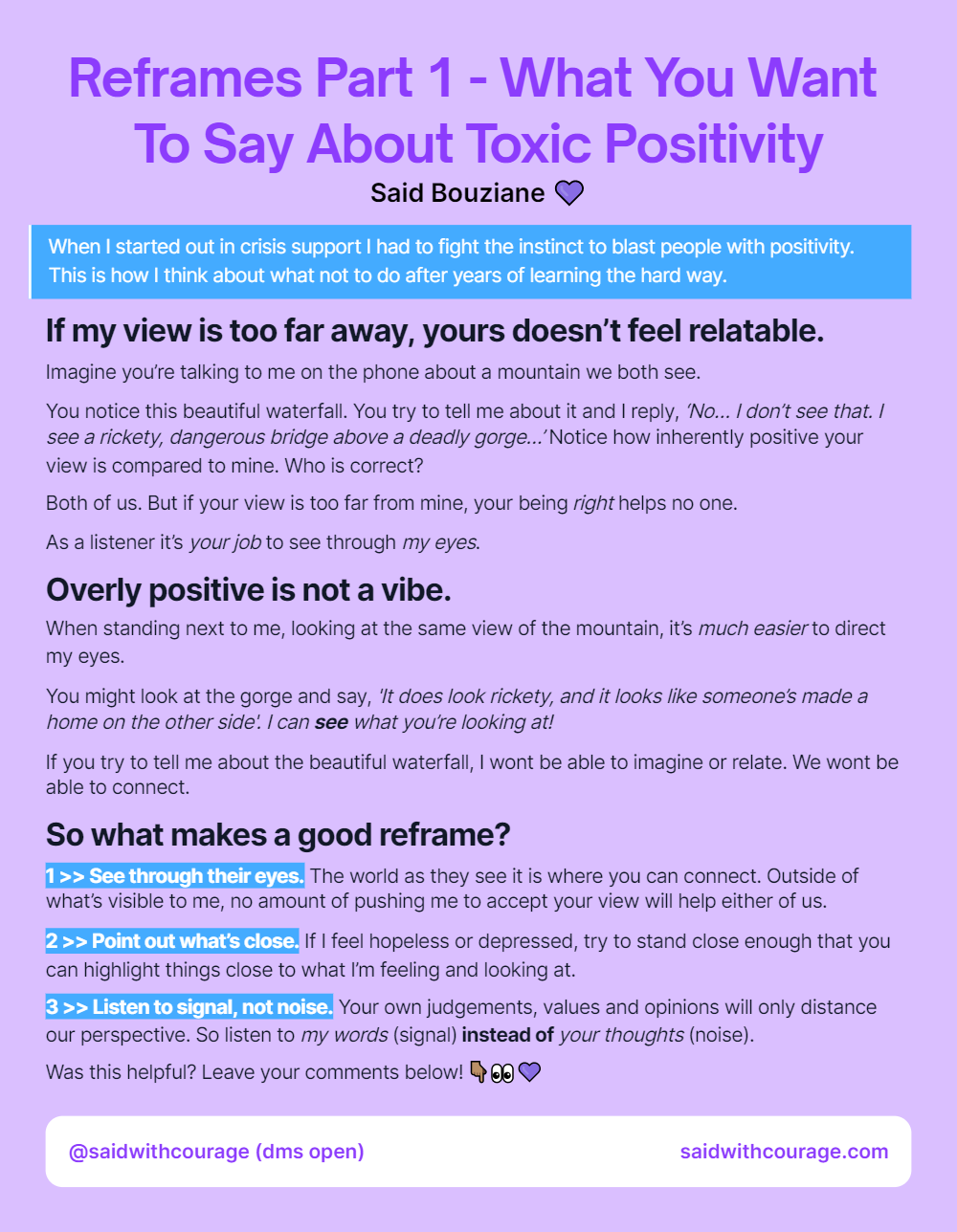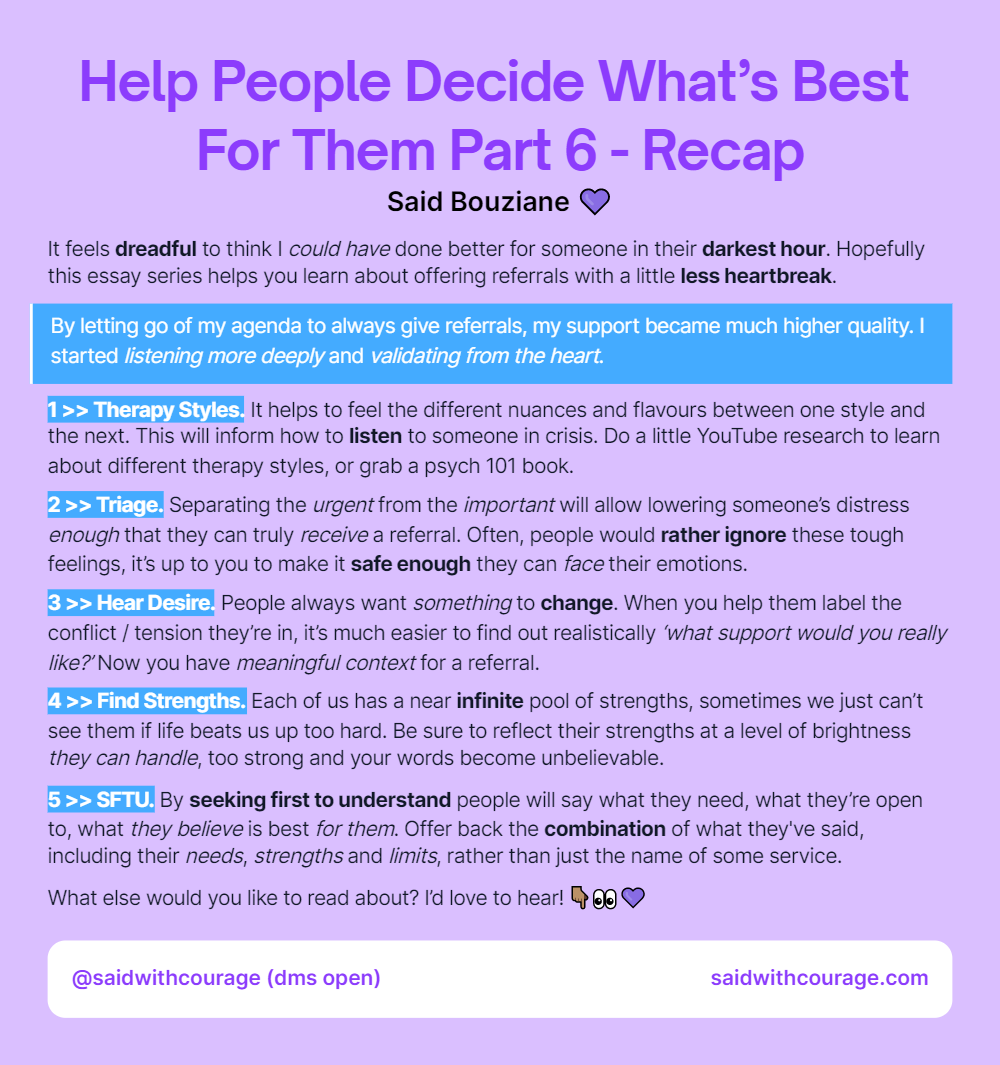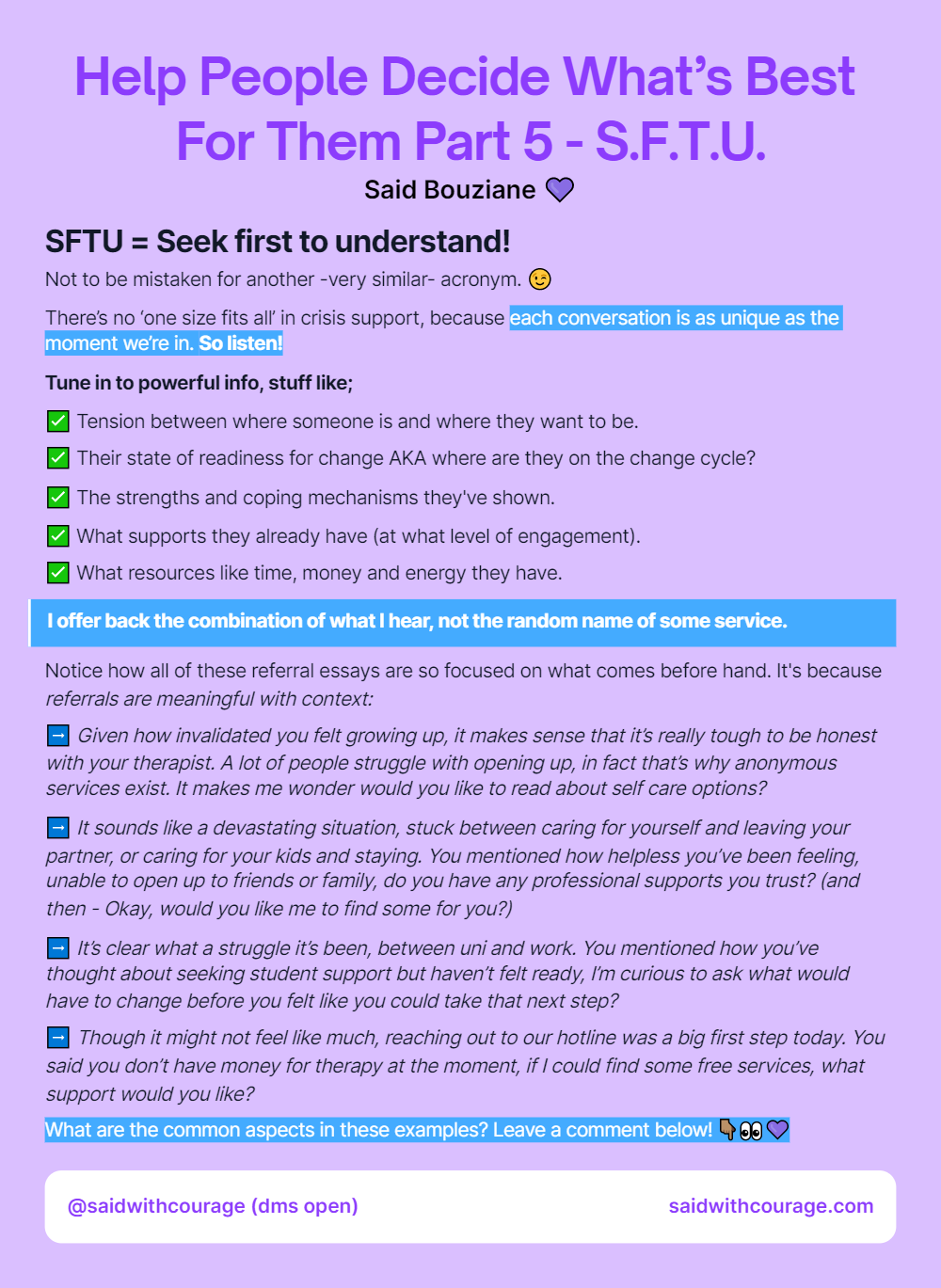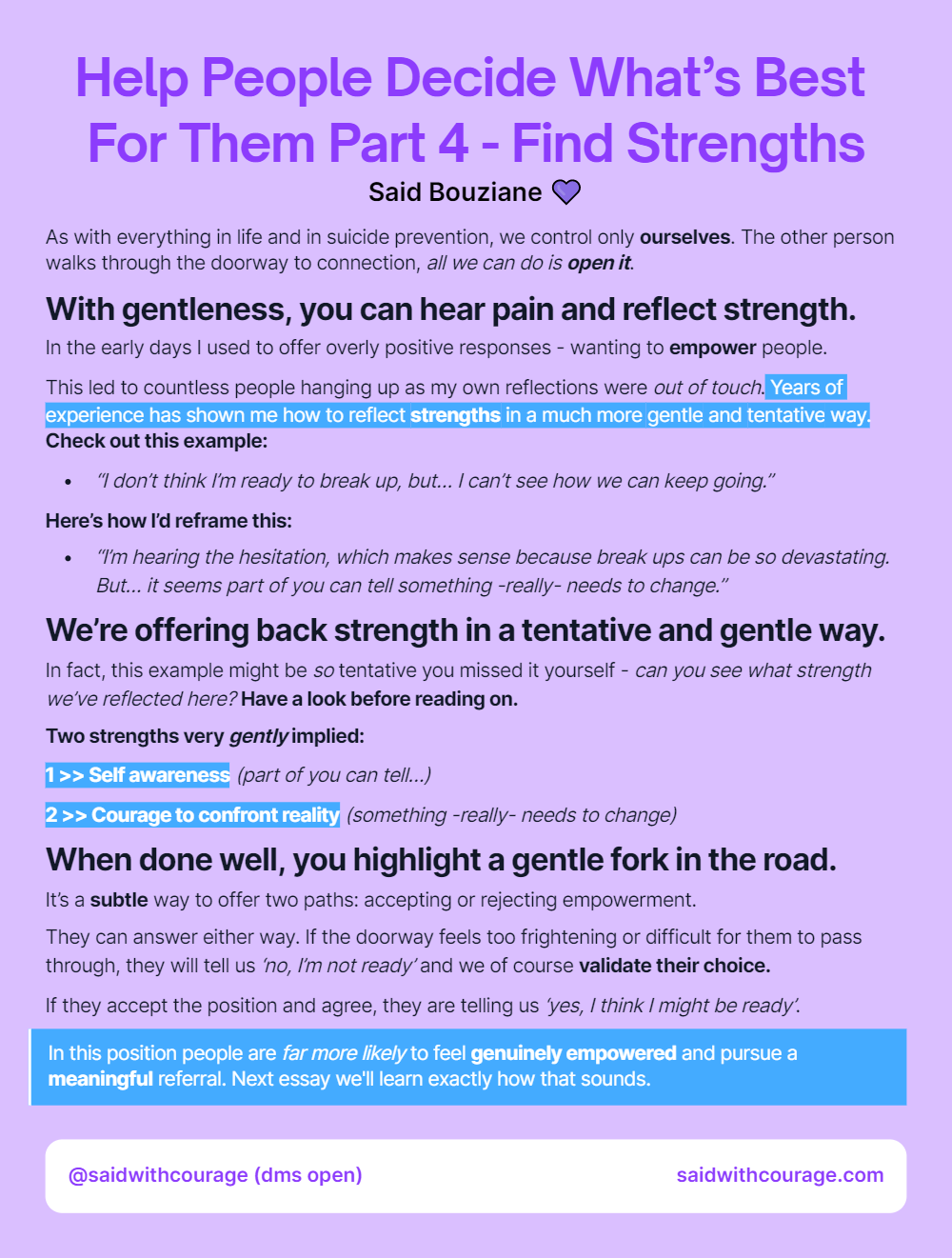-
Reframes Part 7 – Recap
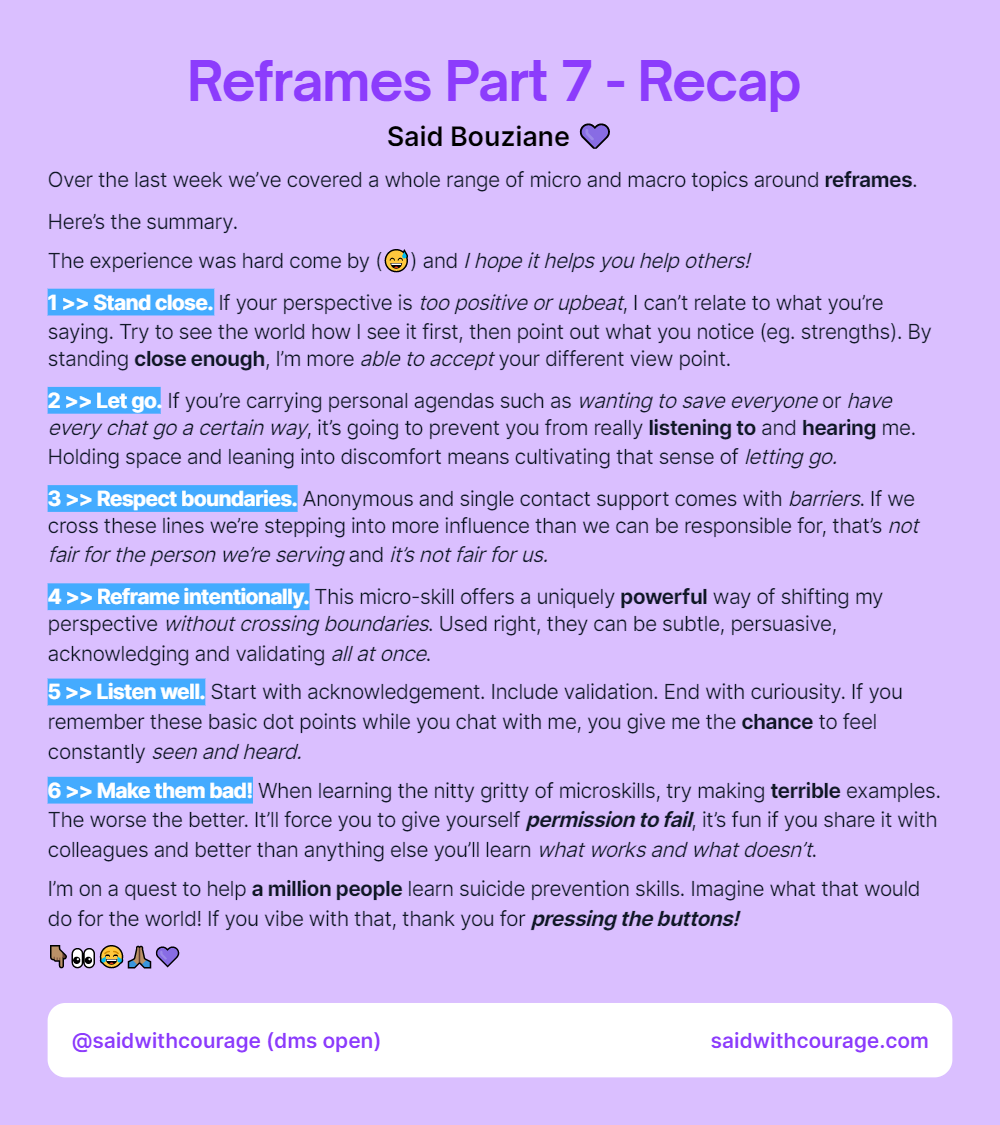
Over the last week we’ve covered a whole range of micro and macro topics around reframes. Here’s the summary. The experience was hard come by (😅) and I hope it helps you help others! 1 >> Stand close. If your perspective is too positive or upbeat, I can’t relate to what you’re saying. Try to…
-
Reframes Part 6 – Examples Of Reframes Under The Microscope

Imagine the following scenario. You and I have been chatting for some time. I tell you about the anxiety I have seeing the bridge outside… again. The chat feels like it’s gone in multiple circles, you’ve tried a few things. Now you try reframing my perspective. Three examples of attempts to reframe my anxiety. 1…
-
Reframes Part 5 – 3 Principles Of High Quality Listening

When I first started in suicide prevention, one of my favourite things to do was listen to other supporters on the phone. I’d listen to their style, tone, pacing and so much more while I thought about one question: What makes good crisis support? Lets look at and unpack listening examples from earlier in this…
-
Reframes Part 4 – Learn This To Better Lift People’s Spirits

Years in crisis support and suicide prevention has shown me reframes are the most powerful and appropriate way to influence someone’s thinking. I had a pretty rude awakening when I started answering the phones. At first it was really weird and uncomfortable to learn non-judgement. Why wasn’t I allowed to give my thoughts and opinions?…
-
Reframes Part 3 – How Personal Agendas Interrupt Listening

Examples of listening interrupted by personal agendas. Firstly I tell you what I see: ‘This old rope bridge. It’s rickety and flimsy, hanging over a dangerous gorge. It gives me anxiety to even look at it – but I can’t look away!’ ❌ With an agenda you reply: ‘It sounds like the bridge is really…
-
Reframes Part 2 – Grow A Mindset Of Letting Go

Last essay we defined toxic positivity. It’s an easy trap to fall into (this coming from a master of falling into traps 🤪), so be kind to yourself! Next up in building the reframe skillset… Define what to let go of in suicide prevention. It took me a year on the phones before I learned…
-
Reframes Part 1 – Here’s What You Want To Articulate About Toxic Positivity

When I started out in crisis support I had to fight the instinct to blast people with positivity. This is how I think about what not to do after years of learning the hard way. If my view is too far away, yours doesn’t feel relatable. Imagine you’re talking to me on the phone about…
-
Help People Decide What’s Best For Them Part 6 – Recap

It feels dreadful to think I could have done better for someone in their darkest hour. Hopefully this essay series helps you learn about offering referrals with a little less heartbreak. By letting go of my agenda to always give referrals, my support became much higher quality. I started listening more deeply and validating from…
-
Help People Decide What’s Best For Them Part 5 – SFTU

SFTU = Seek first to understand! Not to be mistaken for another -very similar- acronym. 😉 There’s no ‘one size fits all’ in crisis support, because each conversation is as unique as the moment we’re in. So listen! Tune in to powerful info, stuff like; ✅ Tension between where someone is and where they want…
-
Help People Decide What’s Best For Them Part 4 – Find Strengths

As with everything in life and in suicide prevention, we control only ourselves. The other person walks through the doorway to connection, all we can do is open it. With gentleness, you can hear pain and reflect strength. In the early days I used to offer overly positive responses – wanting to empower people. This…

